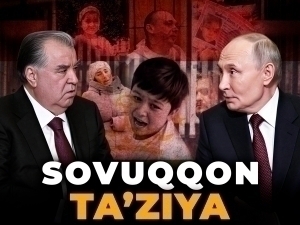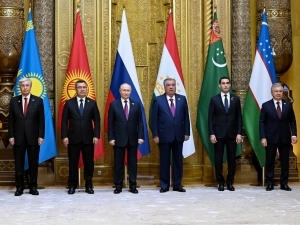Astana's investigation may reshape Baku-Moscow relations
Review
−
06 January 10016 7 minutes
The "black boxes" from the Embraer 190 aircraft of the Azerbaijani airline, which crashed in Kazakhstan on December 25 last year, have been sent to Brazil for analysis. Aeronautical experts have already begun examining the data. The ongoing investigation into the crash, which has strained relations between Baku and Moscow, involves three Kazakh investigators, along with Azerbaijani and Russian agents. The team is collaborating at the Center for Investigation and Prevention of Air Accidents, with Brazil also assisting in the process.
What will the "black box" reveal?
The decision to send the flight recorders to Brazil was not made lightly. The Embraer 190 aircraft is manufactured by the Brazilian company Embraer S.A. Additionally, Kazakh President Kassym-Jomart Tokayev explained in an interview with "Ana tili" newspaper that the government commission investigating the crash opted to send the recorders to Brazil, where the plane was produced, for decoding. Tokayev emphasized that this was the most appropriate choice to ensure an impartial investigation. Under the Chicago Convention, the country leading the investigation into an aviation accident has the authority to select where the "black box" analysis takes place. The decision to send the recorders to Brazil followed recommendations from the International Civil Aviation Organization (ICAO) and consultations with Russia and Azerbaijan. This measure aims to guarantee the reliability of the analysis process and draw on the expertise of the aircraft manufacturer. Technicians at the Center for Investigation and Prevention of Air Accidents in Brazil have already begun extracting and analyzing data from the recorders. The analysis will reveal the pilots' voice recordings and provide information about the aircraft’s condition prior to the crash. The final report, led by Kazakhstan, will include the results of this investigation.
"The technical data will explain the malfunctions that occurred during the emergency landing, as well as changes in the flight path of the Azerbaijan Airlines flight from Baku to Grozny," the report states.
Kazakhstan’s Deputy Minister of Transport, Talgat Lastayev, announced that the Kazakh government commission investigating the Embraer 190 crash will release preliminary or interim findings within 30 days. He cited this timeline as standard practice. Lastayev noted that the aircraft was equipped with a recorder with a two-hour memory, which will provide crucial insights into the incident. If the 30-day timeline holds, the investigation’s initial results will be released by January 30. The findings, expected to be revealed from Astana, may significantly influence the future of Azerbaijan-Moscow relations.
Aliyev demands justice beyond Putin’s apology
Shortly after the plane crash, Azerbaijani President Ilham Aliyev convened an emergency meeting at Heydar Aliyev International Airport to address the incident. During the meeting, Aliyev stated that preliminary information indicated the plane altered its course due to adverse weather conditions and was flying towards Aktau. However, as the investigation unfolded and evidence of potential external interference emerged, the incident escalated into a serious political matter.
Initially, 'Euronews', citing Azerbaijani government sources, reported that the crash was caused by a surface-to-air missile launched by Russia. Azerbaijan’s Minister of Digital Development and Transport, Rashad Nabiyev, echoed these concerns, suggesting that "external interference" may have contributed to the crash. The United States also pointed to the possible involvement of Russian air defense systems. Subsequently, Azerbaijani parliamentarian Rasim Musabekov demanded that Russia apologize for allegedly downing the Azerbaijan Airlines plane with an air defense missile.
In response, Kremlin spokesperson Dmitry Peskov dismissed these claims, stating that the Russian government would refrain from commenting until the investigation concluded. Meanwhile, the Chechen government, under Ramzan Kadyrov’s directive, expressed readiness to provide financial and other assistance to the families of the victims. However, the Azerbaijani presidential administration declined the offer, emphasizing that Azerbaijan did not require external assistance and insisted that Russia identify and punish those responsible.
On December 28, Russian President Vladimir Putin called Ilham Aliyev to apologize for the incident involving the Azerbaijan Airlines passenger plane in Russian airspace. The conversation highlighted that the plane, flying as scheduled, had attempted to land at Grozny airport multiple times.
“At the time, Grozny, Mozdok, and Vladikavkaz were under attack by Ukrainian combat drones, and Russian air defense systems were repelling these assaults. The Russian Investigative Committee has launched a criminal case under Article 263 of the Criminal Code (violation of traffic safety and air transport rules),” the report stated.
However, Putin’s apology did not suffice for Azerbaijan. At the farewell ceremony for the crew on December 29, Aliyev stressed that Russia must not only apologize but also acknowledge responsibility, prosecute those at fault, and compensate Azerbaijan, as well as the injured passengers and crew.
“These are Azerbaijan’s conditions. The first—an apology—was fulfilled yesterday. I expect our remaining demands to be met,” Aliyev declared.
During the ceremony, Azerbaijani President Ilham Aliyev disclosed initial findings regarding the cause of the plane crash. While he noted that the definitive cause will be determined after the "black boxes" are analyzed, Aliyev stated that preliminary evidence suggests the Embraer 190 aircraft, which crashed in Aktau, sustained damage from "a ground attack." He emphasized that this version is grounded in facts and remains highly plausible.
“The facts indicate that a civilian plane was shot down from the ground on Russian territory near Grozny, causing it to nearly lose control. We are also aware that electronic warfare rendered our plane uncontrollable. This was the first instance of damage to the aircraft,” Aliyev asserted.
Aliyev further revealed that Russia had formally suggested involving the Interstate Aviation Committee in the investigation. However, Azerbaijan firmly rejected the proposal. Aliyev explained the reasoning behind this decision:
“It is no secret that this committee is predominantly composed of Russian officials and is led by Russian citizens. Ensuring full objectivity under these circumstances would be challenging. If Russia had demonstrated transparency and fairness immediately after the crash, we might not have opposed the proposal. However, we observed clear attempts to obscure the incident,” Aliyev stated.
Embraer’s history of accidents
Embraer, founded in Brazil in 1969, stands as one of the world’s leading manufacturers of regional and business aircraft. The company began mass production in 2002 and has since introduced next-generation models to the market. Despite its reputation, Embraer aircraft have been involved in 15 aviation accidents since 2000—an average of one incident every six months. A closer examination reveals that most of these accidents stemmed from crew error. Since 2000, including the Aktau crash, Embraer accidents have claimed the lives of 117 individuals. The Embraer 190 model involved in the Aktau incident has a prior record of severe crashes. In 2010, an Embraer 190 operated by Henan Airlines crashed during its final descent from Harbin to Yichun Lindu Airport in China. The aircraft went down roughly one kilometer from the runway, resulting in 44 fatalities among the 96 passengers. Three years later, in November 2013, another Embraer 190 bound for Angola from Mozambique crashed in Namibia’s Bwabwata National Park, killing all 33 passengers. Both incidents were attributed to pilot error. However, the Aktau crash appears to deviate from this pattern. Unlike previous cases linked to human error, bird strikes, or adverse weather, initial assessments suggest external interference. Aliyev’s statements, combined with Russia’s swift offer of assistance and Putin’s rare apology, indicate a more complex scenario. While speculation abounds, the final verdict will be revealed on January 30 when the investigation's findings are expected to be officially disclosed. Until then, the world waits for confirmation of the true events behind the tragic crash.
Live
All



